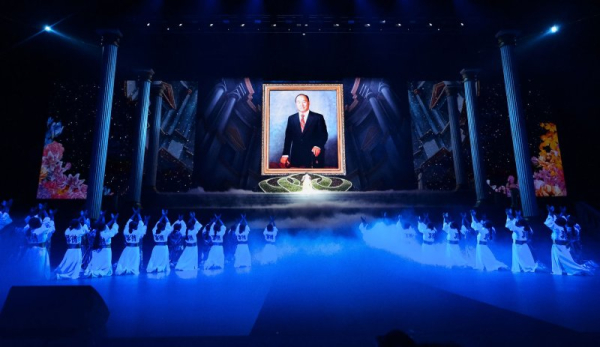
Han Hak-Ja, wife of late Unification Church founder Sun Myung Moon dedicate flower for late Unification Church founder Sun Myung Moon during the commemorating 6th anniversary of the ascension of Rev. Sun Myung Moon before the Blessing Ceremony of the Family Federation for World Peace and Unification at the Cheong Shim Peace World Center in Gapyeong, South Korea, on August 27, 2018. Photo by Keizo Mori/UPI | License Photo
Two years after the assassination of former Prime Minister of Japan, Shinzo Abe, the legal fallout from his shooting continues.
Tetsuma Yamagami, indicted for Abe’s murder, has claimed he acted because Abe had supported some activities of the Unification Church of Japan to which his now deceased mother had donated large sums of money, leaving her family in poverty. Advertisement
Last week, Japan’s Supreme Court reversed a Tokyo High Court ruling in another case about donations to the Unification Church of Japan, now officially known as the Family Federation for World Peace and Unification.
The case was brought by the family of a woman who had also donated more than $618,000 to the Unification Church of Japan between 2005 and 2010. The family is seeking a refund and damages from the church of $402,000.
The lower court dismissed the suit on the basis of a document signed by the woman in November 2015 declaring she made the donation of her own free will and would never seek a refund.
The woman was 86 years old at the time. Around six months later she was diagnosed with dementia and died in 2021. Advertisement
The Supreme Court ruled that the lower court erred in relying solely on the document. It directed the court to examine the circumstances in which the document was signed including the woman’s age, mental state, and whether she was under psychological pressure from the church.
If the lower court rules in favor of the plaintiffs, it is likely to trigger a number of similar cases.
A separate lawsuit at the Tokyo District Court is seeking to remove the Unification Church of Japan’s religious status for its aggressive fundraising practices. A victory for the government would end the church’s tax exempt status.